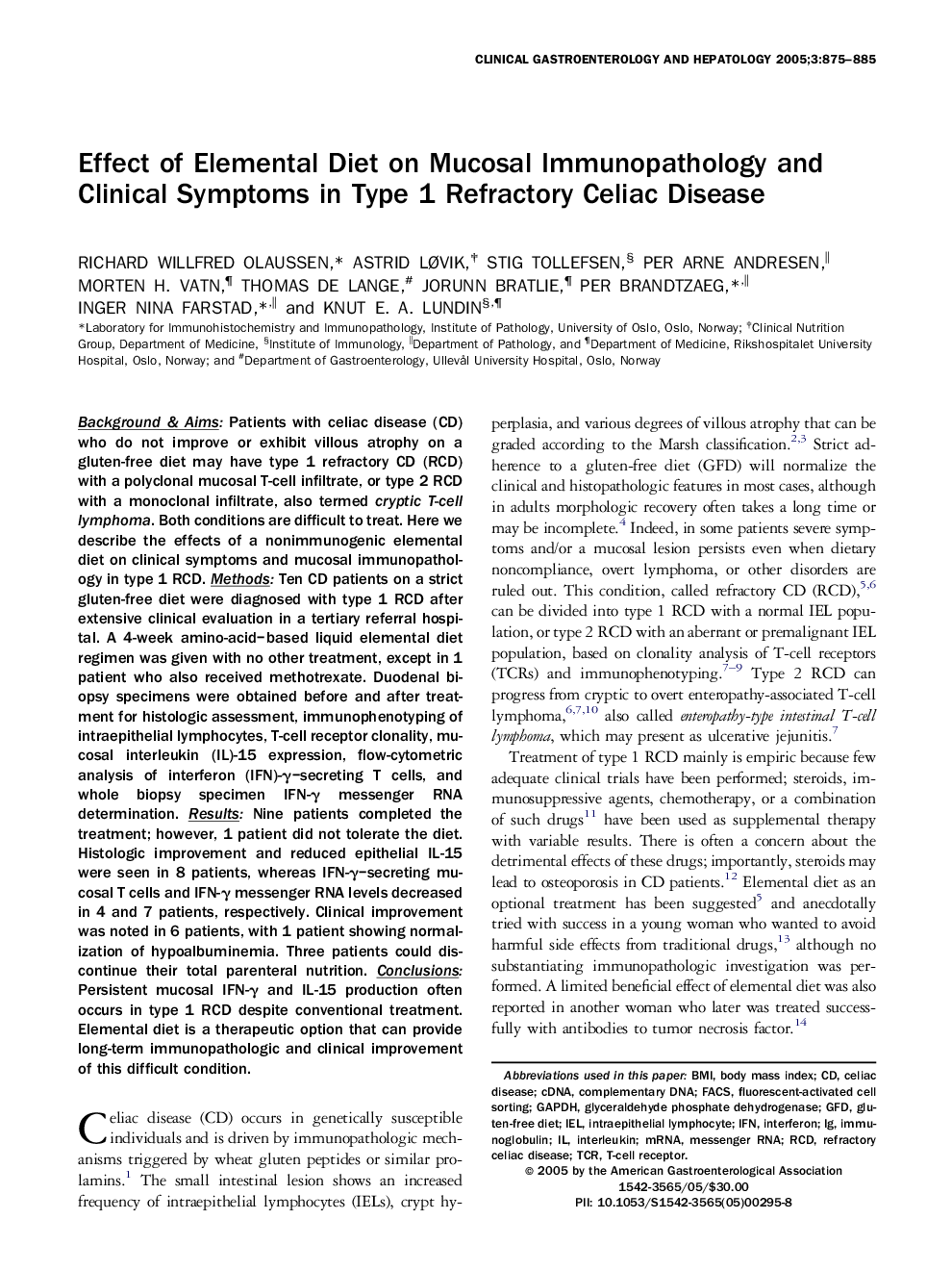| Article ID | Journal | Published Year | Pages | File Type |
|---|---|---|---|---|
| 9241672 | Clinical Gastroenterology and Hepatology | 2005 | 11 Pages |
Abstract
Background & Aims: Patients with celiac disease (CD) who do not improve or exhibit villous atrophy on a gluten-free diet may have type 1 refractory CD (RCD) with a polyclonal mucosal T-cell infiltrate, or type 2 RCD with a monoclonal infiltrate, also termed cryptic T-cell lymphoma. Both conditions are difficult to treat. Here we describe the effects of a nonimmunogenic elemental diet on clinical symptoms and mucosal immunopathology in type 1 RCD. Methods: Ten CD patients on a strict gluten-free diet were diagnosed with type 1 RCD after extensive clinical evaluation in a tertiary referral hospital. A 4-week amino-acid-based liquid elemental diet regimen was given with no other treatment, except in 1 patient who also received methotrexate. Duodenal biopsy specimens were obtained before and after treatment for histologic assessment, immunophenotyping of intraepithelial lymphocytes, T-cell receptor clonality, mucosal interleukin (IL)-15 expression, flow-cytometric analysis of interferon (IFN)-γ-secreting T cells, and whole biopsy specimen IFN-γ messenger RNA determination. Results: Nine patients completed the treatment; however, 1 patient did not tolerate the diet. Histologic improvement and reduced epithelial IL-15 were seen in 8 patients, whereas IFN-γ-secreting mucosal T cells and IFN-γ messenger RNA levels decreased in 4 and 7 patients, respectively. Clinical improvement was noted in 6 patients, with 1 patient showing normalization of hypoalbuminemia. Three patients could discontinue their total parenteral nutrition. Conclusions: Persistent mucosal IFN-γ and IL-15 production often occurs in type 1 RCD despite conventional treatment. Elemental diet is a therapeutic option that can provide long-term immunopathologic and clinical improvement of this difficult condition.
Keywords
Related Topics
Health Sciences
Medicine and Dentistry
Gastroenterology
Authors
Richard Willfred Olaussen, Astrid Løvik, Stig Tollefsen, Per Arne Andresen, Morten H. Vatn, Thomas De Lange, Jorunn Bratlie, Per Brandtzaeg, Inger Nina Farstad, Knut E.A. Lundin,
